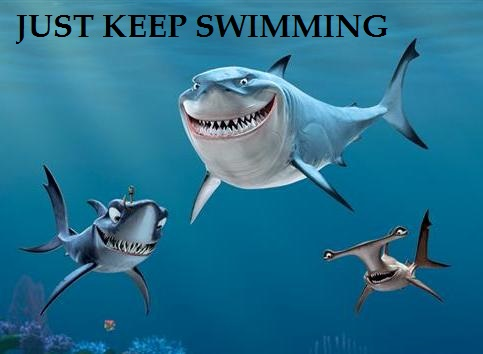
If, to escape the heat or take a break from SAT or GRE studying, you visit the Boston Aquarium this summer, you’ll rapidly notice something about the sharks: they always keep moving. And if you break into the aquarium at night, you’ll notice something even more peculiar (before you’re hauled off). The sharks always keep swimming, even when they sleep. This constant movement keeps water flowing over their gills. Without this constant forward motion, they would suffocate. Surprisingly, keeping sharks in mind will help with SAT preparation.
As a test prep tutor in Boston, I’ve noticed that many of my SAT and GRE tutoring students struggle with time management on their tests. So in this blog post, I hope to share the strategy that I’ve found the most helpful in moving the students that I tutor quickly through the SAT, the GRE, or the MCAT.
The best thing about any multiple-choice test is that the correct answer is always on the page. The big three standardized tests structure their multiple-choice responses like this:
A: Right Answer: Hone in on this one
B: Wrong answer, but really close to the right answer
C: Moderately wrong answer: Tricks students who don’t really know what’s going on, or have some limited comprehension.
D: Totally wrong answer
Students who complain about running up against time limits actually spend a lot of time waffling between A and B. They think that by working this question really hard, they’ll get something more out of it. In fact, all they are doing is wasting time. The organizations that administer standardized tests make choosing between the right answer and the wrong answer really difficult. You have to know the fine subtleties of a model on the MCAT physical sciences section or have grasped the all-important main idea of an SAT reading passage. These harder questions are purposefully tricky. Instead of wasting time on these most difficult questions (the ones that you’re most likely to miss) go with your gut, mark the question, and move on. That way, you won’t be rushed for time on later easy questions. Also, by eliminating the two wrong answers, you have a 50/50 shot of getting the right answer. If you’ve worked with a tutor and developed a good sense of intuition, feel free to trust your gut. You know more than you think you do and your first unconscious answer is likely to be correct. The additional time you spend waffling won’t help you get the answer; you’ll only be wasting time you could be using to answer easier questions. Now, with all the extra time you have at the end of the test, you can come back and review the material. While reviewing, only change it if there is a definite reason to do so.
If applied correctly, you’ll realize that you’ll move at a much quicker pace than before. You can spend that time wisely to get easy questions, rather than wasting it by waffling between answers on hard questions.
If you’re looking for strategies to increase your speed and accuracy on the SAT, GRE, or MCAT, consider talking to a Cambridge Coaching tutor today!

Comments